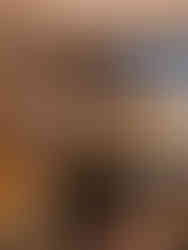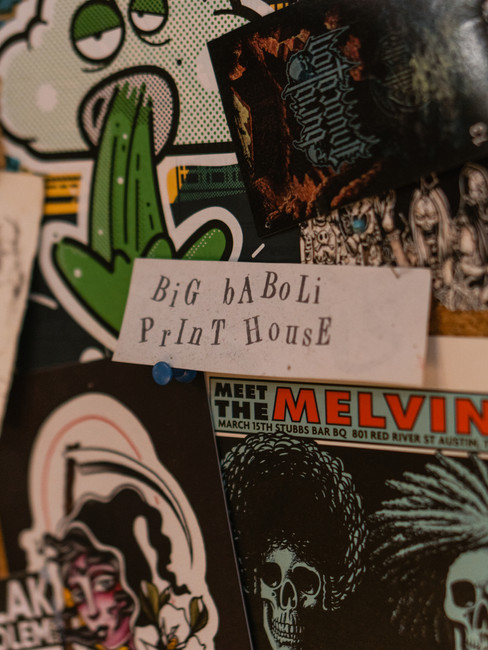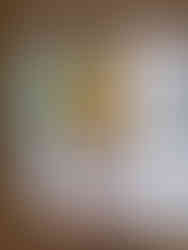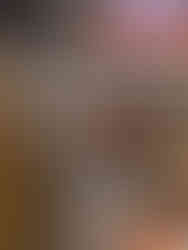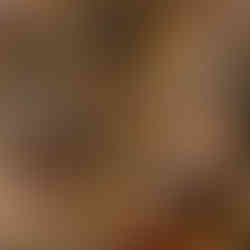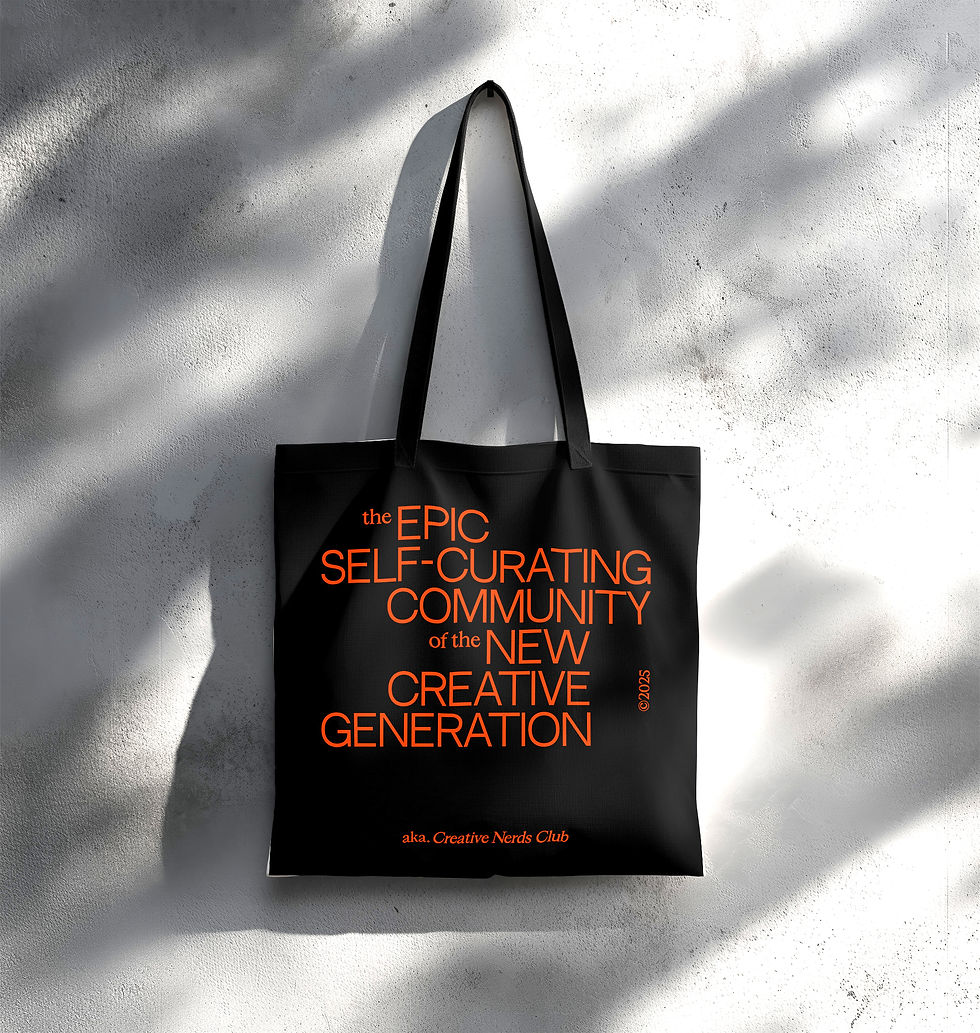Big Baboli Print House's Playground
- Büşra Soydemir
- Aug 7, 2022
- 7 min read
Updated: Sep 5, 2022

We talked with Moklich and Zezeah about print culture and their individual production at Big Baboli Print House.
Interview: Büşra Soydemir - Photos: Beyb Studio
How did you come up with the courage to open a serigraphy workshop when there was no formation to emulate where we are?
Zezeah: After we met Moklich in 2007, we discovered a world of poster artists, and we admired that world. At the beginning of the work, we set out on this dream and determined in which areas we would become professionals in the departments we studied, based on this dream. We established the atelier in 2011.
How well did you comprehend the topic when you set up the print house? Moklich: Printing is purely artisanal, not something that can be learned without working practice. When we came out of school, we realized that we hardly knew the job. We learned about printing by printing other people's works; we got out of our comfort zone. After all, when you print your work, you arrange everything according to you. You design what to draw and print in a way that can be solved in your own world. However, someone else may have created something in ways you never thought possible; you comprehend by analyzing it. There is no such thing as knowing the printing work anyway. Each workshop has its own rules. Which workshop you go to today, the standards are diverse from each other. Each workshop works differently with its materials, such as emulsions, paints, lights on the exposure table, and silk. If we go to another workshop, we cannot work without examining the rules of that workshop.
Zezeah: Although we both studied printing at university, we needed some time to run our own workshop. Because while you are printing in a workshop designed by the teacher at school, you get a general knowledge of printing, and you stay unaware of the many preliminary preparation details offered to you. We learned about these only after we opened our own workshop. Of course, what you call experience does not have a specific duration; it is still an ongoing process.
Was it within your dreams to turn this workshop into a playground for other artists as well?
Moklich: The lack of alternatives led us to provide printing services. There are very few independent screen-printing workshops in Turkey; original printing workshops like linoleum and lithography are almost non-existent. It attracted attention when this place was established because there was not much place to go. Serving artists was not in our plans. Over time, we started to enjoy this as well, and it's nice to maintain the workshop with something we enjoy doing. At this point, we can supply professional printing services for many artists.
Zezeah: Many artists abroad, especially in the United States, have screen printing workshops, work on posters and take these two disciplines together. This was the point we dreamed of at the beginning. We aimed to present our drawings as posters for music groups and develop on that path. Bringing together 20 diverse artists, Krüw allowed us to open up. We learned a lot as we worked together and started printing their work. Over time, we began to open up by printing the works of other artists. After giving this service and straightening our backs, we could do the things we wanted to do much more comfortably.
Your positioning in Krüw was more like a collective action rather than printing together. Zezeah: We tried to do at Krüw was to present our exhibition in our accessible art formula to our client. We completely emptied a shop and made a pop-up exhibition area. We exhibited our works in places with no art space, and no galleries have the right to speak. It got a lot of attention. Artists can somehow find their formulas and go their own way.
Each artist's personality or sensitivity to his work is different. How do you find balance when working with so many artists? Zezeah: Artists know that they will receive technical and artistic guidance when they come here.
Moklich: We have trust with the people we work with. We guide if an artist brings a few works and doesn't know which one to print. We often determine the colors of the print with the artist; we can have interventions about the color. These are all minor interventions. People come here openly for ideas. It is already part of the job to sit down with the artist and decide what path we will follow in the case of the incoming job.
How does the process go for you in your productions other than printing?
Zezeah: Music is always on in the workshop during the day, but if I need a private space, I prefer to wear headphones and listen to music. Because this creates an environment where no one can get involved, I can stay on my own and think more focused. I first start my work with a sketch, but the sketch is not based on an image that exists in my head. A figure or concept I come up with decides the course of the work, and I learn on the road what will come out as an outcome. The process of working on the original with ink after the sketch is out is the part I enjoy the most.
Moklich: The idea comes in the rare moments when you can be alone. Being on the road and wearing headphones helps this; the crucial thing is to be alone. Most ideas come to my mind in the early morning hours, and I start my work with a pre-designed sense of what I will produce. I still work on most sketches on paper and then finalize them digitally.
How is your calendar shaped between your individual productions and the work of the studio? Zezeah: We have a variety of work that we can divide into three separate classes; the printing work occupies most of our calendar. We also set aside certain weeks for our own artistic and music-oriented works.
How do you approach the groups you think are not fit for your line?
Moklich: Although we mainly produce for aggressive music, we draw graphs for many genres. Our priority is to have an idea that excites us while creating in this field. If there is a situation that we cannot fully feel, we can choose not to do it at all.
Zezeah: There was a period in which I purposely changed my style in terms of posters and proceeded along a line that did not belong to me. Since I thought it could be compatible with many more genres, I tried to build a style that could be called less striped, colorful, and sympathetic but still composed of pessimistic compositions. However, at some point, I started to work primarily on metal music, thinking that maybe it would be proper to move on to a more specific genre to return to the complex and colorless world that I like to do again. After this point, I can advance myself technically more easily. Although I am close to a more specific type of music in terms of style, I can be flexible by changing the composition content.
At what step do you feel satisfied with your work while creating? Moklich: It's like getting caught up in the process there. The act of doing is the fun of the job; you enjoy doing the work more than the result. The result is forgotten after two days. You don't even want to see it. If you're a designer or an artist and don't enjoy the process, the pleasure time when it's over is very short. If you enjoy the action, it takes a long time to enjoy it.
Being a producer of album covers, posters and merch mean being a consumer of these products. What is your collection on this issue? Moklich: We used to collect posters, albums, books, and magazines before we opened the workshop. Personally, I primarily collect music-oriented things, but any material that can inspire me interests me. Instead of concentrating on a specific product, I do many different types of collections that appeal to my world.
Zezeah: We collect many products from the artists we print in Big Baboli and from our collectors. I've been collecting toys for years. My collection is of sad toys that no one wants to buy.
You have a peculiar urge to point to a corner in your work. What is the determinant of this approach? Zezeah: There are so many alternatives for doing things as an artist. You even have to restrict yourself at some point. At the university, I learned about making production with many techniques such as sculpture and ceramics. I can make technical analyzes and solve many problems within the scope of this information. However, the method I wanted to focus on as an artist was ink, pencil, and screen-printing on paper. Just because you can do it doesn't mean you should. Even though I work on paper, playing with paper and pushing it beyond the standards can make the job more fun. That's why I can occasionally come up with alternative ideas for the form and the material of the material. In addition, making fancy products is something we both enjoy. Sometimes we work on products such as a match or a t-shirt/hoodie and sell them as editions. Whatever we do, we are careful to make a promise to the customer to produce in limited numbers. We expand the circle as much as we want by paying attention to these.
What are your comments on the future of edition culture? Zezeah: The field we are in is both art and printing are not consumption for basic needs; it is a luxury. Moreover, there is no need to rush to buy the edition works; if it is not a priority, they can be purchased later. None of the materials we use here are produced locally, and the costs have increased tremendously. Our prices are determined accordingly. As artists selling editions, what makes us most satisfied is that even students can buy a print they like with their own money. It was our dream to encourage collecting original art pieces with lower budgets. Due to the increase in the prices of artistic materials needed due to the current situation and the cost of the work, we are forced to increase prices, which will disturb many balances. We will see together the balance in which both the artist, us, and the buyer are in.
Moklich: The main issue is the fate of people who are just starting to collect these works. People who have come to a point in collecting will not be affected by the situation, but newcomers will have difficulties. The costs are very different from when we started collecting things; I cannot imagine just starting this business now.




